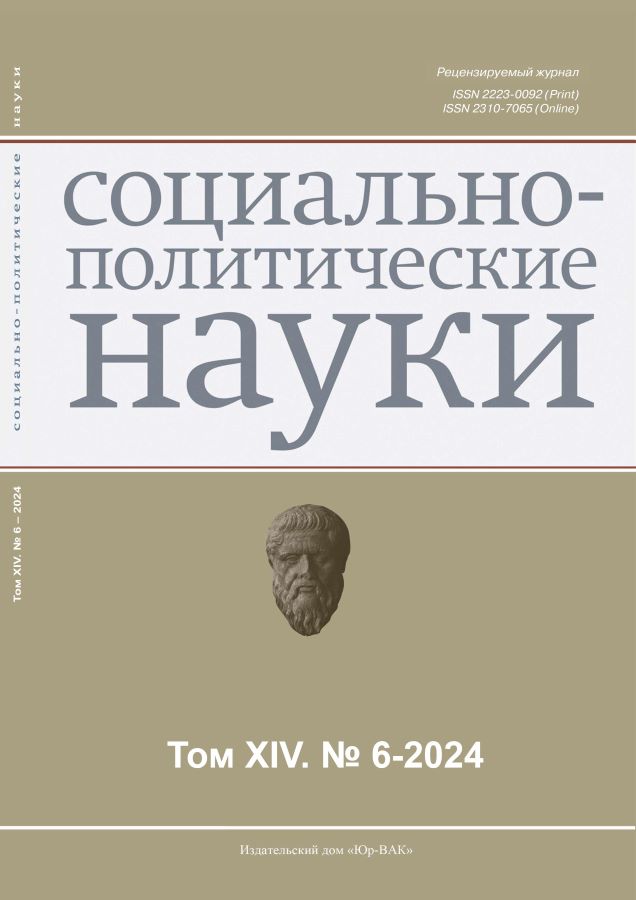Внешнеполитическая стратегия: основные подходы к определению понятия и его научный потенциал
- Авторы: Вавилов А.Н.1
-
Учреждения:
- Дипломатическая академия Министерства иностранных дел России
- Выпуск: Том 14, № 6 (2024)
- Страницы: 105-113
- Раздел: Международные отношения, глобальные и региональные исследования
- URL: https://journals.eco-vector.com/2223-0092/article/view/654065
- DOI: https://doi.org/10.33693/2223-0092-2024-14-6-105-113
- EDN: https://elibrary.ru/DXYUBT
- ID: 654065
Цитировать
Полный текст
Аннотация
Анализ и изучение внешнеполитической деятельности в современных условиях связаны с широким плюрализмом научных подходов, в рамках которых основное внимание сосредоточено на факторах различного характера, а также многообразием трактовок распространенных ключевых понятий, одним из которых является «внешнеполитическая стратегия». Анализ практики использования понятия «внешнеполитическая стратегия» позволяет выявить два подхода к его определению. В рамках первого подхода стратегия рассматривается как план или концепция действий, в рамках второго – как целенаправленная деятельность. В рамках второго подхода, который представляется более продуктивным и перспективным, а также соответствующим отечественной научной традиции, предложен авторский вариант определения данного понятия и его соотношения с такими дефинициями как «внешнеполитический курс», «внешнеполитическая программа». Основное содержание внешнеполитической стратегии раскрывается посредством категорий «цели» и средства», что предоставляет дополнительные возможности для исследования внешнеполитической деятельности, описания и классификации ее разнообразных форм, а также способствует снижению многообразия дефиниций и их трактовок.
Полный текст
Об авторах
Андрей Николаевич Вавилов
Дипломатическая академия Министерства иностранных дел России
Автор, ответственный за переписку.
Email: an_vavilov@mail.ru
SPIN-код: 6920-1786
Scopus Author ID: 57203132152
кандидат политических наук, стажер
Россия, г. МоскваСписок литературы
- Баталов Э.Я. Мировое развитие и мировой порядок (анализ современных американских концепций). М.: Российская политическая энциклопедия (РОССПЭН), 2005.
- Гантман В.И. Система, структура и процесс развития современных международных отношений. М.: Наука, 1994.
- Гончаров А.В. Стратегическая география. Что это такое? Мiнск: Беларускае геаграфiчнае таварыства, 2008.
- Давыдов Ю. Понятие «жесткой» и «мягкой» силы в теории международных отношений // Международные процессы. 2004. Т. 2. № 1. С. 74–79.
- Изотов В.С. Особенности формирования геополитической стратегии России в постсоветский период: концептуальный аспект: дис. … канд. полит. наук. М., 2009.
- Косоруков А.А. Внешнеполитическая стратегия современного государства: соотношение глобального и национального: монография. М.: МАКС Пресс, 2016.
- Мальгин А.В. Внешнеполитические ресурсы России и пределы их реализации. Ч. II // Pro et Contra. Внешняя политика России: 1991–2000. 2001. Т. 6. № 4. С. 94–117.
- Мединский В.Р. Теоретико-методологические проблемы формирования внешнеполитической деятельности России в условиях становления глобального информационного пространства: дис. ... д-ра полит. наук. М.: РАГС, 2005.
- Моргентау Г. Реалистическая теория международной политики // Теория международных отношений. Н. Новгород: Изд-во ННГУ, 2001.
- Най Д. Будущее власти. М.: АСТ, 2014.
- Никонов В.А. Ресурсы и приоритеты внешней политики Российской Федерации // Современные международные отношения и мировая политика: учебник для вузов. М.: Просвещение. 2005.
- Политология: Энциклопедический словарь / общ. ред. и сост. Ю. Аверьянов. М.: Изд-во Моск. коммерческого университета, 1993.
- Поздняков Э.А. Системный подход и международные отношения. М.: Наука, 1976.
- Проскурин С.А. Теоретико-методологические проблемы формирования внешнеполитического курса Российской Федерации в условиях меняющегося мира: дис. … д-ра полит. наук. М.: РАГС, 1997.
- Социологическая энциклопедия / рук. Г.Ю. Семигин. М.: Мысль, 2003. 539 с.
- Сучков М.А. Современная внешняя политика США на Южном Кавказе: дис. ... канд. полит. наук. Пятигорск, 2011.
- Фридман Л. Стратегия: Война, революция, бизнес / пер. с англ. И. Голыбиной. М.: Кучково поле, 2019.
- Хрусталев М.А. Основы теории внешней политики государства. М., 1984.
- Хрусталев М.А. Анализ международных ситуаций и политическая экспертиза: уч. пособие для вузов. М.: Аспект Пресс, 2015.
- Цыганков П.А. Теория международных отношений: учебник. М.: Гардарики, 2007.
- Шишкина О.В. Внешнеполитические ресурсы: Россия и ЕС на пространстве «общего соседства». М.: Аспект Пресс, 2014.
- Charnay J.-P. Essai generale de la Strategie. P., 1973.
- Keohane R., Nye J. Power and independence. 3rd ed. NY.: Addison Wesley Longman, 2001.
- Liddel Hart B. Strategy. N.Y. 1967.
- Morgenthau G. In defense of the national interest. NY., Alfred A. Knopf, 1951.
- Posen B. The sources of Military Doctrine: France, Britain, and Germany between the wars. Ithaca; NY.: Cornell University Press, 1984.
Дополнительные файлы









